Chameleon People - [9]
We shook hands briefly in the doorway. Her hand was small, but it was supple and firm. And from what I could see, given her plain black dress, the rest of her body was much the same. When I looked more closely, I could see red blotchy patches under her eyes. I caught myself thinking that Per Johan Fredriksen had either been very charming or very lucky to find himself such an attractive young lover at his age.
Harriet Henriksen put the security chain back on the door behind us and showed me into the living room. I could see that she lived in a simple and tidy flat that was modern and equipped with a TV and washing machine. There was no sign of anyone else living there.
On the other hand, there was plenty of evidence that Per Johan Fredriksen was there rather a lot. A large photograph of him hung alone on the hallway wall, and another photograph of the two of them was up in the living room. Seeing him again was unsettling, especially as these were the only photographs adorning the walls. One wall was hidden by an upright piano and the others were covered by bookshelves, landscape paintings and a couple of tapestries. The door to the bedroom was open and through it I could see a double bed made up for two. The most striking thing that caught my attention in the living room, however, was a large, framed photograph of the two of them, which was standing on the table beside an almost burnt-down candle. Per Johan Fredriksen had his arm lovingly around her shoulder. They were both smiling at the camera.
‘That was in Paris,’ she said suddenly. As if that explained everything. ‘We could never show our love publicly here in Oslo. He was too well known. But we had two days together in Paris last summer and there we could walk around and be lovers without any worries. They were two of the happiest days of my life. And now they are all I have to live off for the rest of my days.’
She had not asked me to sit down, but I had done so all the same. We were sitting on either side of the coffee table, with the photograph and candle between us. And we looked straight at each other. She had the darkest brown eyes I had ever seen.
‘I first heard about it on the news last night,’ she said, without prompting.
Just as I had. I could suddenly picture it. He had been here, kissed her goodbye and left. She had, perhaps, like me, stood by the window and watched her beloved go. Then she had sat down alone and switched on the radio to listen to the news, only to collapse suddenly when she heard the announcement that he had been stabbed. I was oddly convinced that that was how it had been.
‘So, he was here with you yesterday?’ I asked, to the point.
She nodded. She looked away for a moment, out of the window. Her eyes almost accusing the world.
‘Per was a very complex man and often appeared different in different settings. Politically, he was more conservative than me. I still thought that he was credible on TV and in debates, if somewhat boring and reserved, but he was completely different when he was here with me: open, humorous and even passionate. We could talk about anything, even that. And he always said that I was the only one who could see him for what he really was, the only person he could really be himself with. He said I brought out the best in him in a way that no one else could. He often came here on Saturday afternoons, between work and the family. And yesterday, he once again left the world behind and sought refuge with me for a few happy hours. We had both been looking forward to it all week. And as usual we experienced complete happiness and joy. I asked if he could stay a bit longer. And he said that he had to go back to his office at the Storting to check some important news about something he was working on before going home to his family. I accepted it, as I always did. I watched him walk away down the street and I was alone when the news that he had been stabbed was announced on the radio. It felt like the ground opened beneath my feet. In a split second, I fell into a cold, dark cellar I didn’t even know existed. I, who have never believed in a God before, was prostrate and prayed that Per Johan would survive, until it was then announced on the late-night news that he had died. I have been here alone at my table weeping ever since, not even so much as a phone call, until you rang at the door.’
As soon as she started to speak, the words just came tumbling out. There was a strange, almost compelling intimacy and intensity about this woman and her voice, which made me inclined to believe every word she said. I felt no physical attraction to her, but, all the same, I could well understand why Per Johan Fredriksen had.
I was still not entirely convinced that she had no connection to the murder. So I asked Harriet Henriksen if she had any children.
She shook her head vaguely and I noticed the light catch a tear in her left eye.
‘No, no. I don’t have any children and I guess I never will now. In fact, I don’t have any family at all. I never had brothers or sisters, and my parents are no longer alive. I only had Per Johan, and we never had the children I hoped we might. That was my fault. Last night I went over it a thousand times. If I had just done as he suggested, I would still have a part of him. But now I’m thirty-seven and completely on my own with nothing to live for.’
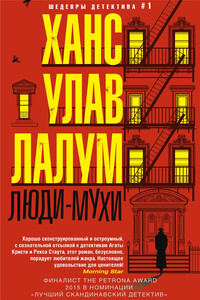
Убит бывший лидер норвежского Сопротивления и бывший член кабинета министров Харальд Олесен. Его тело обнаружено в запертой квартире, следов взлома нет, орудие убийства отсутствует. На звук выстрела к двери Олесена сбежались все соседи, но никого не увидели. Инспектор уголовного розыска Колбьёрн Кристиансен считает, что убийство, скорее всего, совершил кто-то из них. Более того, он полагает, что их показания лживы.
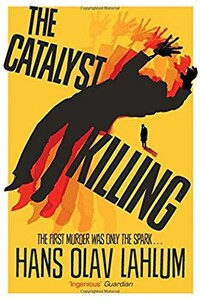
The third mystery in the hugely compelling, bestselling international crime series from Norway's answer to Agatha Christie, Hans Olav Lahlum, The Catalyst Killing will have you guessing to the final clue. The first murder was only the spark… 1970: Inspector Kolbjorn Kristiansen, known as K2, witnesses a young woman desperately trying to board a train only to have the doors close before her face. The next time he sees her, she is dead… As K2 investigates, with the help of his precocious young assistant Patricia, he discovers that the story behind Marie Morgenstierne's murder really began two years ago, when a group of politically active young people set out on a walking tour in the mountains.
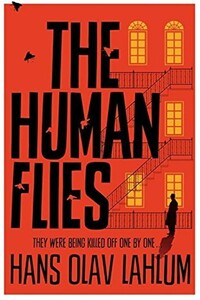
Oslo, 1968: ambitious young detective Inspector Kolbjorn Kristiansen is called to an apartment block, where a man has been found murdered. The victim, Harald Olesen, was a legendary hero of the Resistance during the Nazi occupation, and at first it is difficult to imagine who could have wanted him dead. But as Detective Inspector Kolbjorn Kristiansen (known as K2) begins to investigate, it seems clear that the murderer could only be one of Olesen's fellow tenants in the building. Soon, with the help of Patricia – a brilliant young woman confined to a wheelchair following a terrible accident – K2 will begin to untangle the web of lies surrounding Olesen's neighbors; each of whom, it seems, had their own reasons for wanting Olesen dead.
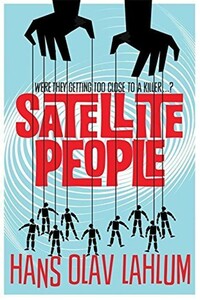
A gripping, evocative, and ingenious mystery which pays homage to Agatha Christie, Satellite People is the second Norwegian mystery in Hans Olav Lahlum's series. Oslo, 1969: When a wealthy man collapses and dies during a dinner party, Norwegian Police Inspector Kolbjorn Kristiansen, known as K2, is left shaken. For the victim, Magdalon Schelderup, a multimillionaire businessman and former resistance fighter, had contacted him only the day before, fearing for his life. It soon becomes clear that every one of Schelderup's 10 dinner guests is a suspect in the case.
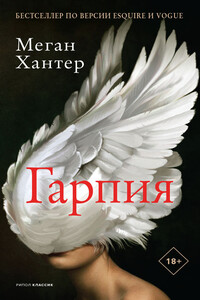
Люси и Джейк – образцовые супруги. У них двое детей, уютный домик и налаженный семейный быт. Он строит карьеру. Она посвятила всю себя семье. Но тихую идиллию нарушает шокирующая весть. Джейк изменил Люси. Теперь уже ничто не будет как прежде… Боль от предательства. Разбитые надежды. Люси и Джейк решают остаться вместе, но с одним условием. Чтобы «уравнять» супругов и спасти брак, Люси трижды причинит боль Джейку… Любым способом, каким захочет.
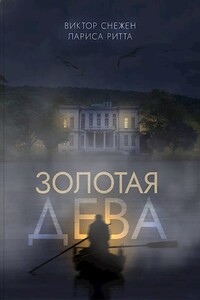
Во время летнего фестиваля искусств на территории бывшей графской усадьбы происходит убийство. Чеховская чайка, призванная олицетворять свободный творческий полёт, может стать символом тёмного мира, где жизнь не имеет цены. Поймёт ли следователь Кречетов, к какому миру принадлежит каждый из персонажей? Сумеет ли он распутать цепочку странных взаимосвязей? А может быть, в этой цепочке замешан призрак графини, блуждающий по аллеям парка и охраняющий тайну старинного клада?
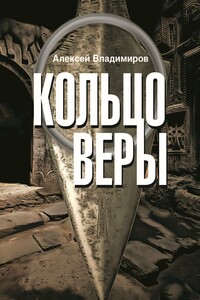
Археолог Вера Буковская при раскопках монастыря в Армении обнаруживает кусок льняной ткани с непонятными надписями и чертежом. Странная находка погружает «везучую Верочку» в кольцо динамично развивающихся событий, предсказать которые не может никто. Командор Тайного ордена хранителей Священного Копья и римский кардинал, магистр Мальтийского ордена и отставной полковник Котов, петербургский академик-востоковед Пиоровский и безжалостный итальянский специалист по «щекотливым делам» охвачены азартом охоты за утерянным тысячелетия назад артефактом.
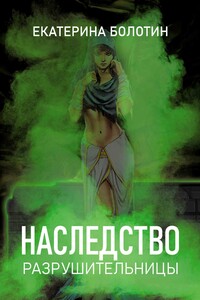
Профессор археологии Парусников обнаруживает в Израиле захоронение Лилит – первой женщины, созданной Творцом вместе с Адамом еще до появления Евы. Согласно легенде, Лилит пыталась подчинить мир с помощью женских чар и за это была уничтожена. У еще не вскрытого учеными саркофага Лилит случайно оказывается Арина, бежавшая в Израиль от невзгод, которые обрушились на нее в Москве. Что произойдет с женщиной, которой достанется энергия Лилит? Не возникнет ли у нее желания подчинить мир своим прихотям? А если возникнет, то кто сможет остановить ее?
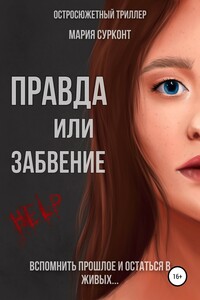
Эрна, молодая девушка, недавно попавшая в аварию, приходит в себя в больнице, рядом с незнакомым человеком, утверждающим, что он ее муж. Девушка не помнит, как оказалась в другом городе и когда успела выйти замуж. Что она делала последние два года? Муж пытается ей помочь вспомнить, однако о многом не рассказывает. А когда на пороге дома появляется полиция, Эрна узнает, что была последней, с кем разговаривала пропавшая без вести девушка, которая исчезла как раз в вечер аварии. Эрна должна восстановить события и понять, что ее связывает с пропавшей, о чем недоговаривает муж и какая истинная причина потери памяти. Перенесись в суровый Берлин и погрузись в мрачную историю Эрны Кайсер.

В книге рассказывается история главного героя, который сталкивается с различными проблемами и препятствиями на протяжении всего своего путешествия. По пути он встречает множество второстепенных персонажей, которые играют важные роли в истории. Благодаря опыту главного героя книга исследует такие темы, как любовь, потеря, надежда и стойкость. По мере того, как главный герой преодолевает свои трудности, он усваивает ценные уроки жизни и растет как личность.